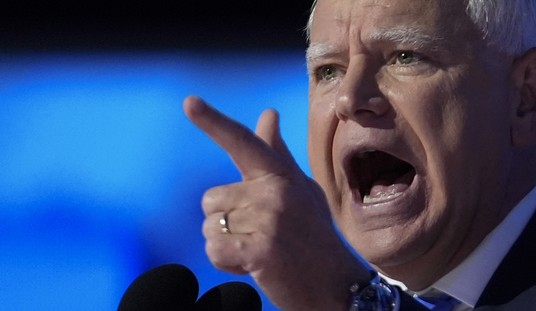The New York Times notices the smoke collecting on the ceiling of the auditorium of the world and wonders whether there might be something to worry about. Peter Baker in an article titled “Crises Cascade and Converge, Testing Obama” notices that things are falling apart. “Not long after a passenger jet exploded in midair and plummeted to the ground in Ukraine last week, escalating a volatile crisis pitting the United States and Europe against Russia, President Obama’s thoughts turned to Syria.”
Baker has a thought. These problems may be linked.
Rarely has a president been confronted with so many seemingly disparate foreign policy crises all at once — in Ukraine, Israel, Syria, Iraq, Afghanistan and elsewhere — but making the current upheaval more complicated for Mr. Obama is the seemingly interlocking nature of them all. Developments in one area, like Ukraine, shape his views and choices in a crisis in another area, like the Middle East.
Like Sherlock on the trail, he suggests a common cause links them all. But we are advised not to worry, because the president is hot on the trail of the mystery; trying to identify the factor that connects all these catastrophes. Patience is advised, it is not elementary, my dear Watsons. The world is a complex place which only the the very smartest can understand.
Little wonder then that in recent days the president seems almost to be suffering geopolitical whiplash. “We live in a complex world and at a challenging time,” he said wearily last week after making a statement in which he addressed Ukraine, Gaza, Iran and Afghanistan, all in the space of seven minutes. “And none of these challenges lend themselves to quick or easy solutions.”
So he spends himself unstintingly trying to untie the Gordian Knot. But here’s a quick solution. Cut the Gordian Knot: resign.
That will work if the nexus of these problems is the president himself.
There is of course an alternative hypotheses. One theory is that our current failures are rooted in the end of the Cold War. Or perhaps in the legacy of George Bush. If we could only return to the days of Dr. Strangelove or before the year 2000 then all would be well. This is a favorite of those who see the world in complex terms. Baker writes:
The cascading crises reflect larger trends, according to Richard N. Haass, president of the Council on Foreign Relations. While the Cold War made for clear relationships, there is no such structure anymore. “So what you have are relationships where you may cooperate with certain countries on certain issues on certain days of the week, while on other issues on other days of the week, you may compete or simply go your own way,” he said.
The problem with this analysis, apart from the unavailability of a Time Machine to solve it, is that it may be inverting the direction of causality. Haass’ nostalgia for the Cold War may really be a longing for the competence in American leadership which characterized it then. He doesn’t miss the Cold War. He misses Harry Truman; he misses Ronald Reagan. It’s not unreasonable to think that if Barack Obama had been president during the Cuban Missile Crisis then you would not be reading these words. And then you wouldn’t miss the Cold War so much.
But Obama’s the president we’ve got.
One of the fundamental tests of leadership is an ability to include one’s self in the critique. One of the most disturbing things about Obama’s style of management is his absolute inability to consider he might have something to do with the catastrophe. The Usual Suspects are anyone but his magnificent self. It’s a blind spot. It’s like watching a basketball player refuse to consider there may be anything wrong with his form after missing the last 100 of 100 shots.
The world is a complex place but the key to unraveling complexity is knowing where to start looking. It lies in finding the key.
But if Obama and his supporters are ruling out the obvious, so too are many of the president’s critics who hope that at some point — perhaps when he misses 500 out of 500 — that he’ll suddenly realize that he’s doing it wrong. They’re hoping for this because the common perception is that the world is stuck with him until 2016. But perhaps he won’t notice he’s missed the last 1,000 shots for the very same reason that caused the blunders already committed.
The one crisis that Peter Baker omits to mention is the inability of the American political system to diagnose and fix itself. It lies in the circumstance that Baker can realize the world is falling apart without being able to put his finger on why. It is exhibited in Alan Dershowitz’s perspicacious insight that Israel has been put in an impossible position while remaining a pillar of the Democratic cheering squad. They can enumerate the problems but they don’t know what it means.
The feedback loop is kaput. That is the key. But no one in Washington seems capable of divining where the smoke on the ceiling is coming from because it’s coming from them. The significance of the dog that did not bark in the night is that nobody in establishment DC is barking. It means things will only come to a head when the theater actually starts to burn.
Recently purchased by Belmont Club visitors:
Biblical Archaeology: A Very Short Introduction
For Whom the Bell Tolls
Quantum: Einstein, Bohr, and the Great Debate about the Nature of Reality
The Last Gunfight: The Real Story of the Shootout at the O.K. Corral-And How It Changed the American West
SunJoe SWJ800E Electric Pole Chain Saw, 8-Inch, 6.5-Amp
God Less America: Real Stories From the Front Lines of the Attack on Traditional Values
TPENWK Williams Tactical Pen
Did you know that you can purchase some of these books and pamphlets by Richard Fernandez and share them with you friends? They will receive a link in their email and it will automatically give them access to a Kindle reader on their smartphone, computer or even as a web-readable document.
The War of the Words for $3.99, Understanding the crisis of the early 21st century in terms of information corruption in the financial, security and political spheres
Rebranding Christianity for $3.99, or why the truth shall make you free
The Three Conjectures at Amazon Kindle for $1.99, reflections on terrorism and the nuclear age
Storming the Castle at Amazon Kindle for $3.99, why government should get small
No Way In at Amazon Kindle $8.95, print $9.99. Fiction. A flight into peril, flashbacks to underground action.
Storm Over the South China Sea $0.99, how China is restarting history in the Pacific
Tip Jar or Subscribe or Unsubscribe to the Belmont Club










Join the conversation as a VIP Member